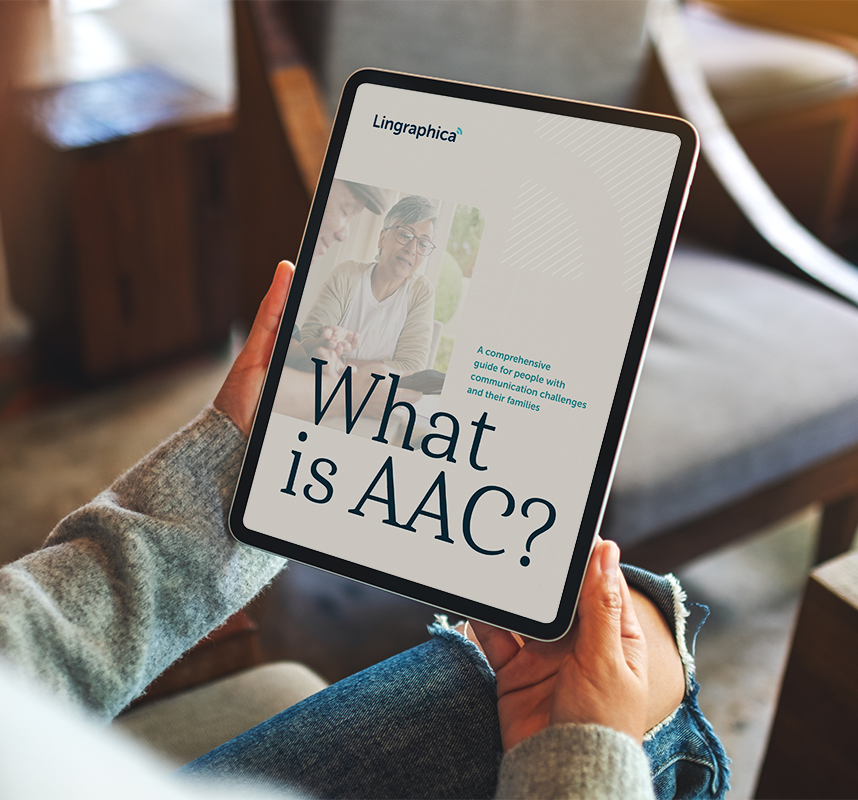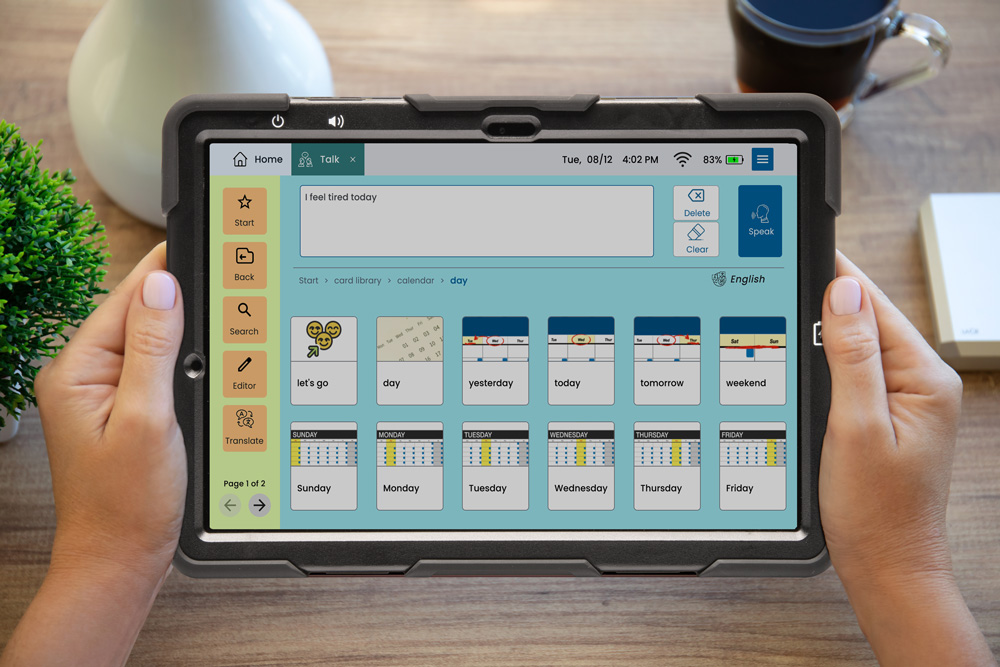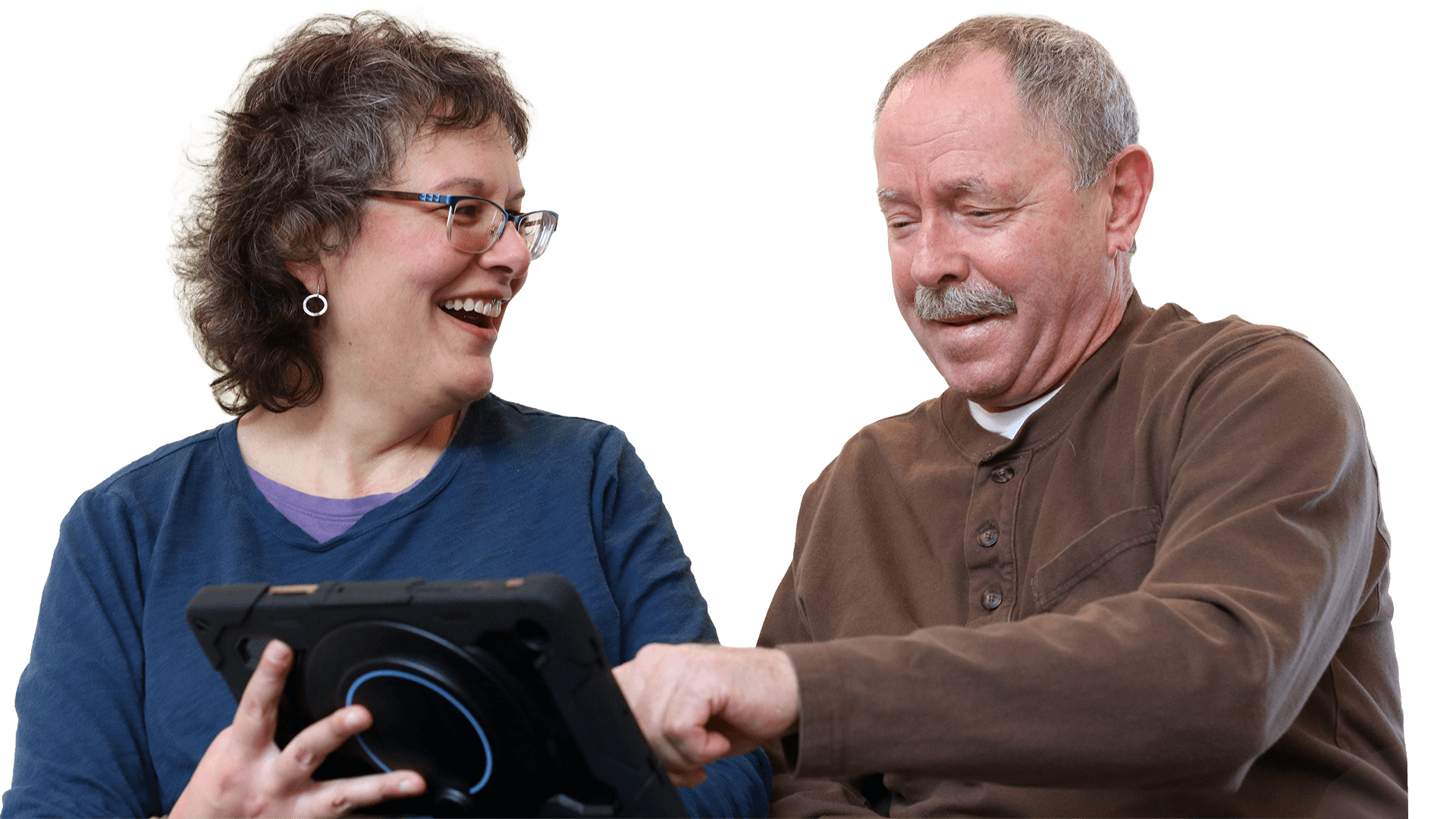
As we recently learned, the caregivers of people with aphasia face a variety of unique challenges in addition to the mental, emotional, and physical effects that frequently coincide. Caregivers grapple with stress, emotional well-being, sleep quality, energy level, life outlook, and even physical pain or discomfort. They also report worsening relationships with friends, people in general, and the person with aphasia. In short, being a caregiver can take a heavy toll on one’s life.
Consider this excerpt from a recent eBook entitled, “Overcoming Aphasia Caregivers’ Biggest Challenges”. In it, one caregiver recounts the heart-wrenching experience of finding his wife unresponsive in their living room after she’d suffered a stroke, the shock of discovering she’d lost the use of the right side of her body and the ability to speak, and the thoughts going through his mind the day of her release from the hospital:
The day I was told she was being sent home I was in shock. Other than repeating some words, she couldn’t speak or write, and had no use of her right arm and leg. She was not even able to control her bowels or urine flow. I knew then I was going to be a 24/7 caregiver.
Despite the toll, caregivers do what they do because they want what is best for their loved one. The vast majority say that they are motivated by how invested they are in their loved one’s quality of life, want to aid in that person’s recovery, and feel that it is a personal obligation.
Why Overcoming These Challenges Is So Critical
Lingraphica has helped people with aphasia and their loved ones to improve their communication and quality of life for thirty years. The one constant we have seen time and again is that when caregivers take an active role in speech therapy sessions and learn to employ certain strategies and techniques around communication, it leads to better outcomes for both them and their loved one.
Sadly, many caregivers fail to see the value in taking an active role in communication or presume that the current level of communication with their loved one is adequate. In fact, the majority of caregivers say that communication assistance is the activity that they help their loved one with the most. But ironically, that same majority report that communication is their single biggest challenge.
While caregivers certainly face a bevy of other significant challenges like: their loved one’s dependence on them, motivating their loved one, finding time for self-care, keeping up with household activities, and lack of finances – communication challenges are perhaps the most addressable of all. In fact, resolving communication challenges may help to alleviate several other challenges.
Moreover, unless caregivers work to overcome these challenges, they are likely to experience a serious decline in their own health. That may leave them unable to care for themselves, let alone the person with aphasia. So, how can caregivers start to overcome these challenges?
How to Overcome Communication and Other Challenges
The first step is to simply consider exactly how much of a challenge communication is between you and your loved one. Think back to recent interactions and consider how challenging it was for your loved one to communicate their message, whether they were able to fully express what was on their mind, and whether you are confident that your message to them was fully understood.
Consider how much of a difference it could make to the both of you if you were able to communicate more quickly and completely without as much painstaking effort. Caregivers who struggle with communication may liken it to playing a game of charades.
Additionally, think about how it would impact you both if your loved one didn’t have to rely on you for communication assistance when engaging with others. Perhaps they wouldn’t be as dependent on you as they are today, and you’d find yourself able to take on more of the things that are important for you personally.
About Contributor
Lingraphica helps people with speech and language impairments improve their communication, speech, and quality of life. Try a Lingraphica AAC device for free.













